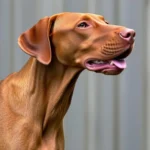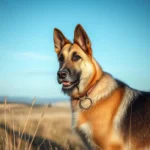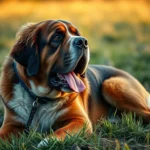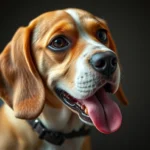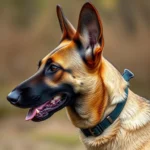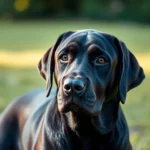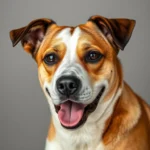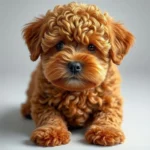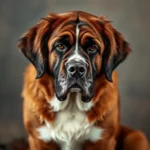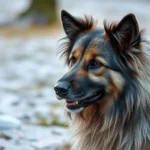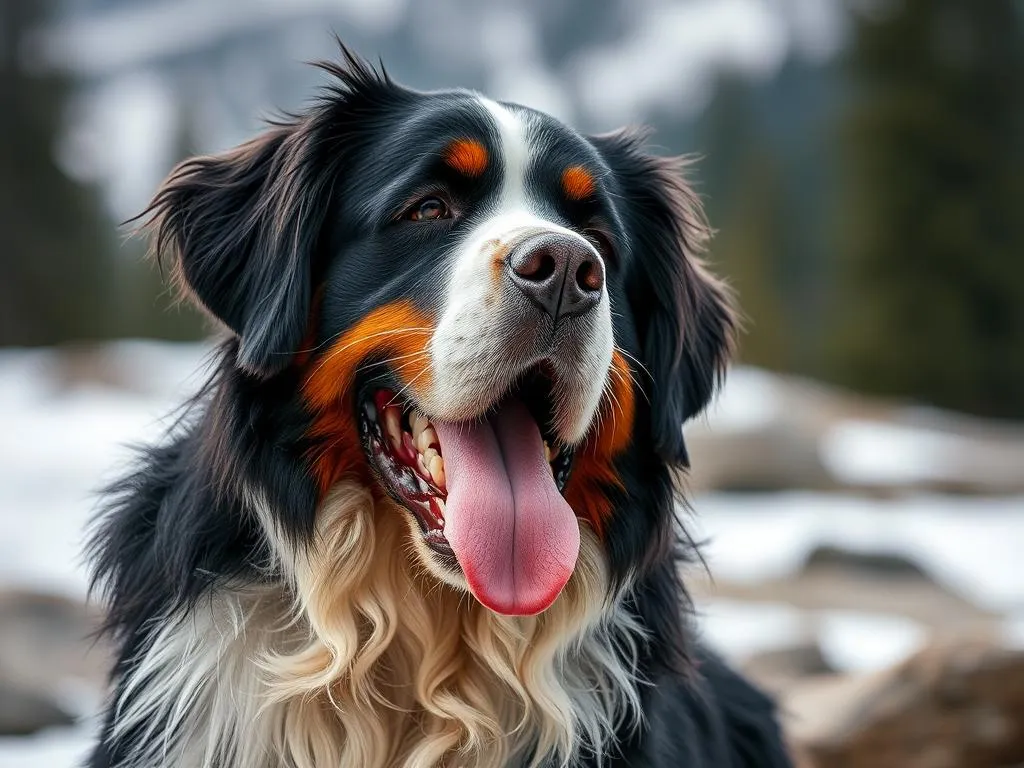
Bernese Mountain Dogs are a beloved breed known for their striking appearance and gentle temperament. Originating in the Swiss Alps, these dogs were originally used as farm dogs, helping with herding and guarding livestock. Their history is rich, with a lineage that dates back to Roman times, making them one of the oldest breeds still thriving today. Bernese Mountain Dogs typically weigh between 70 to 115 pounds and are recognized for their beautiful tri-color coats, which consist of black, white, and rust.
With their friendly and affectionate nature, Bernese Mountain Dogs make excellent family pets. They are known for being loyal, good with children, and adaptable to various living environments. However, as with any breed, prospective owners should be aware of certain characteristics, particularly regarding their grooming needs and health considerations.
One common question that arises among potential owners is, do Bernese Mountain Dogs drool? Understanding drooling in dogs is vital for any dog owner, as it can impact their care and daily interactions.
Understanding Drooling in Dogs
What is Drooling?
Drooling, or excessive salivation, occurs when saliva accumulates in a dog’s mouth and spills over. While some drooling is perfectly normal, especially when a dog is hungry or excited, excessive drooling can indicate various underlying issues. In most dog breeds, drooling can be caused by several factors, including excitement, heat, the smell of food, or even dental problems.
Why Do Some Dogs Drool More Than Others?
Certain breeds are more predisposed to drooling than others due to their anatomical structure. Dogs with loose lips or longer jowls, such as Saint Bernards or Bloodhounds, tend to drool more. In contrast, breeds with tighter lips and shorter muzzles usually drool less. The size of the dog can also influence the extent to which they drool; larger dogs tend to produce more saliva, which can lead to drooling during moments of excitement or anxiety.
Additionally, health factors may play a significant role in drooling. Conditions like dental disease, nausea, or systemic illness can lead to an increase in saliva production, which may cause a dog to drool excessively.
The Bernese Mountain Dog Overview
Breed Characteristics
Bernese Mountain Dogs are large, sturdy dogs that exude strength and grace. They have a thick double coat that requires regular grooming, particularly during shedding seasons. Their coat is primarily black with distinctive white markings on the face, chest, and paws, complemented by rust-colored accents. This breed typically stands 23 to 28 inches tall at the shoulder, with males generally larger than females.
In terms of temperament, Bernese Mountain Dogs are known for being calm, affectionate, and intelligent. They are considered excellent companions and tend to bond closely with their families. Their friendly disposition makes them great with children and other pets, but they also require socialization and training to prevent any potential behavioral issues.
Health Considerations
Like many large breeds, Bernese Mountain Dogs are prone to certain health issues. Common concerns include hip and elbow dysplasia, certain types of cancer, and heart conditions. Their lifespan ranges from 7 to 10 years, which is shorter than many smaller breeds. Regular veterinary check-ups, a healthy diet, and proper exercise can help maintain their overall health and well-being.
Do Bernese Mountain Dogs Drool?
Common Perceptions About Drooling
When it comes to do Bernese Mountain Dogs drool, there are several myths and misconceptions surrounding the subject. Some people assume that all large breeds drool excessively, while others believe that drooling is solely a sign of health issues. In reality, the drooling behavior of Bernese Mountain Dogs can vary significantly from one dog to another.
While some Bernese Mountain Dogs may drool occasionally, particularly in anticipation of food or during hot weather, it is not a defining characteristic of the breed. Comparatively, other breeds, such as Mastiffs or Bulldogs, are known for their significant drooling, often leaving puddles on the floor.
Actual Drooling Behavior in Bernese Mountain Dogs
The extent of drooling in Bernese Mountain Dogs can be influenced by various factors. For example, excitement can cause a Bernese to drool more than usual, especially if they are anticipating a walk or playtime. Additionally, heat can also trigger increased saliva production, leading to noticeable drooling.
It’s essential to note that not all Bernese Mountain Dogs will drool significantly. Many owners report minimal drooling, while others may notice their dogs drooling more during specific situations. Generally, a moderate amount of drooling is seen during meal times or when the dog is particularly excited.
Drooling and Health Issues
While some drooling is normal, excessive drooling can indicate potential health problems. Conditions such as dental disease, oral tumors, or gastrointestinal issues may lead to increased saliva production. If a Bernese Mountain Dog’s drooling appears sudden or excessive, it’s essential to consult a veterinarian to rule out any underlying health concerns.
Recognizing abnormal drooling is crucial. If a dog is drooling excessively without any obvious cause, such as food or excitement, it could be a sign of nausea or other distress. Regular monitoring of your dog’s behavior and saliva production can help identify any potential health issues early on.
Managing Drooling in Bernese Mountain Dogs
Tips for Dog Owners
For dog owners, managing drooling can be a straightforward task with proper care and attention. Here are some helpful tips to keep in mind:
-
Regular Grooming: Maintaining a regular grooming routine can help manage drooling. Brushing your Bernese Mountain Dog not only keeps their coat healthy but also allows you to check for any signs of dental issues that could lead to increased drooling.
-
Hygiene Practices: Keeping your dog’s mouth clean can help minimize drooling. Regular dental care, including brushing their teeth and providing dental chews, can reduce the risk of dental disease, which is a common cause of excessive drooling.
-
Diet Considerations: The type of food you provide can influence drooling. Dogs with food allergies or sensitivities may drool more. Observing your dog’s reaction to different foods and adjusting their diet accordingly can help manage drooling.
When to Seek Veterinary Advice
While some drooling is normal, certain signs indicate that it may be time to seek veterinary advice. If your Bernese Mountain Dog exhibits any of the following symptoms, it’s essential to consult a veterinarian:
- Sudden onset of excessive drooling
- Drooling accompanied by vomiting or lethargy
- Difficulty eating or chewing
- Signs of pain when opening their mouth
- Changes in appetite or weight
Regular veterinary check-ups can help monitor your dog’s overall health and address any drooling concerns.
Other Breeds That Tend to Drool
Overview of Drooling Breeds
While Bernese Mountain Dogs may not be the most notorious droolers, several other breeds are known for their propensity to drool. Here’s a quick overview:
- Saint Bernard: This giant breed is famous for its drooling, especially when excited or anticipating food.
- Bloodhound: Known for their tracking abilities, Bloodhounds often drool due to their loose facial skin and jowls.
- Newfoundland: Another large breed, Newfoundlands are also known for significant drooling, particularly in hot weather.
- Mastiff: With their heavy jowls, Mastiffs are notorious droolers, often leaving a trail of slobber wherever they go.
Comparison with Bernese Mountain Dogs
When comparing Bernese Mountain Dogs to these drooling breeds, it becomes clear that while some drooling is typical for Bernese, it is not on the same level as breeds like Saint Bernards or Mastiffs. The drooling behavior in Bernese Mountain Dogs can be relatively mild, particularly when they are healthy and content.
Conclusion
In summary, the question of do Bernese Mountain Dogs drool can be answered with a nuanced perspective. While they can drool, it is not a defining or excessive trait of the breed, especially when compared to others. Understanding the factors that contribute to drooling and recognizing when it may indicate a health concern is crucial for any owner.
Owning a Bernese Mountain Dog can be a rewarding experience filled with companionship and affection. By staying informed about their grooming needs and health considerations, owners can manage drooling effectively and enjoy the many joys that come with this gentle giant. Whether you’re considering bringing one into your home or already have a Bernese Mountain Dog as part of your family, being prepared and informed can lead to a fulfilling relationship.
